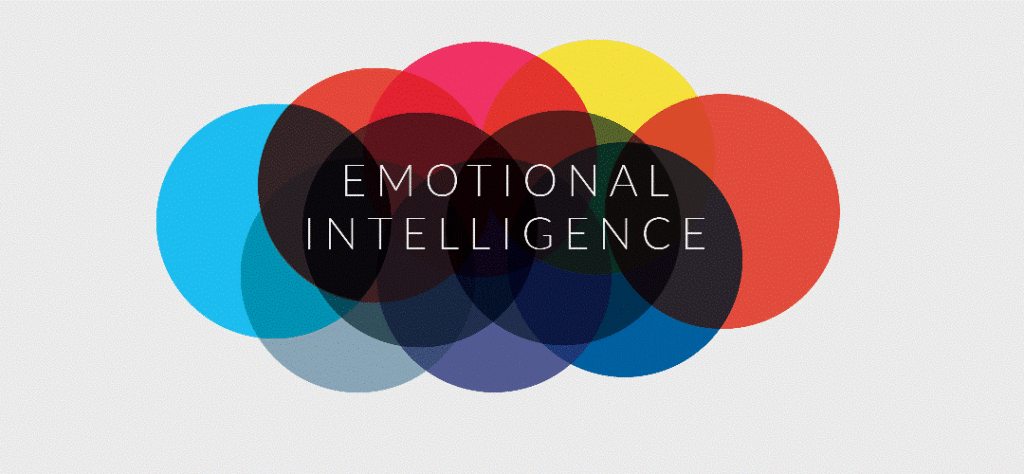How to use Emotional Intelligence to Exceed Patient’s Expectations!

We’re all familiar with the concept of Intelligence Quotient (IQ), but few of us recognize the power of Emotional Quotient (EQ) also referred to as Emotional Intelligence (EI) in the healthcare environment.
In 1912, German psychologist William Stern coined the term “IQ,” which stands for Intelligence Quotient. IQ measures cognitive abilities relative to age, and although this metric is important, it doesn’t paint the full picture of success, especially in patient care.
As optometrists, we have all been tested and earned degrees that demonstrate our IQ. But did you know that EQ is just as critical to our success, joy, and fulfillment in the profession?
Emotional Intelligence: The Key to Exceeding Patient Expectations
Harvard University theorist, Howard Gardner explains, “Your Emotional Quotient (EQ) is the level of your ability to understand other people, what motivates them, and how to work cooperatively with them.” EQ enables us to read other people’s emotional signals and react appropriately. In today’s patient-centered world, this ability is more important than ever.
Why? Because a significant part of the patient experience is emotional. From the moment a patient walks into your practice, they are navigating a journey filled with both positive and negative emotional reactions. Your ability to identify and bridge the emotional gap between patient expectations and your practice’s perceptions is directly related to your EQ—and the EQ of your team.
Let’s break it down with an example. Imagine a patient who arrives late and frustrated. Your team has two choices: respond with equal frustration or recognize the patient’s emotional state, show empathy, and de-escalate the situation. The latter not only diffuses tension but also demonstrates high EQ in action.
The Five Categories of Emotional Intelligence
According to the Harvard Business Review Guide for Emotional Intelligence, EQ is divided into five categories:
- Self-Awareness
Self-awareness is your ability to recognize your own emotions and their effects on others. Practicing self-awareness allows you to separate your feelings from those of your patients. For example, when a patient is upset, being self-aware helps you avoid internalizing their frustration, enabling you to focus on finding a solution rather than reacting emotionally. - Self-Regulation
Self-regulation is the ability to control your emotional responses. People with high self-regulation manage their feelings well, acting with more integrity and resilience. Imagine dealing with a difficult patient; the ability to self-regulate means you can maintain professionalism and calm, regardless of the situation. - Motivation
Motivation within EQ is driven by intrinsic factors, such as the satisfaction of providing excellent care, rather than external rewards like financial gain. Patients can sense your motivations, and when your care is driven by compassion and not just profit, it enhances their experience and satisfaction. - Empathy
Empathy is your ability to understand and respond to the unspoken feelings of others. Research highlights three types of empathy—emotional, cognitive, and compassionate. In patient care, compassionate empathy is critical. It allows you to feel for the patient without becoming emotionally overwhelmed yourself, enabling you to offer meaningful assistance without losing your professional objectivity. - Social Skills
Social skills enable you to build rapport and effectively communicate with others. Whether it’s convincing a patient to follow a treatment plan or discussing new lens technology, strong social skills allow you to connect with your patients and move them in a positive direction. Social skills are the culmination of all other EQ components, helping you manage relationships and create an exceptional patient experience.
The Science Behind Emotional Intelligence
The significance of EQ is well-documented. Psychologists generally agree that among the ingredients for success, IQ counts for roughly 10%—at best 25%—with the rest depending on factors like emotional intelligence. EQ affects not only how we perceive and manage our emotions but also how we engage with others, making it an essential tool for building positive patient experiences.
According to Daniel Goleman’s emotional intelligence theory, the key to success lies in self-awareness, self-regulation, motivation, empathy, and social skills. You can learn more about Goleman’s theory here: Daniel Goleman’s Emotional Intelligence Theory.
Furthermore, a study published in BMC Psychology found that emotional intelligence is linked to improved psychological well-being, motivation, and resilience—all essential attributes in healthcare. Read the study here.
Why EQ Matters for Your Team
Your patients spend more time with your team than they do with you. Therefore, your team’s EQ is just as important as your own. By improving your team’s emotional intelligence, you can transform patient interactions, exceed expectations, and dramatically increase satisfaction.
Take time to go over these five EQ categories in your team meetings. Encourage your staff to become more emotionally intelligent, and watch your patient satisfaction soar. Competition is fiercer than ever in the field of eyecare, and offering good services and products at a reasonable price is no longer enough. The patient experience is the new battleground, and emotional intelligence is your weapon of choice.
If you’re interested in unlocking the full potential of your practice through emotional intelligence, consider joining our CEO of YOU® Business Coaching Program. This program is designed to help you and your team develop the EQ skills necessary to thrive in today’s competitive landscape. Learn more and sign up here: CEO of YOU® Private Practice Membership.
By investing in EQ, you’re not just enhancing patient satisfaction—you’re setting your practice up for long-term success and fulfillment.
References:
- Emotional Intelligence and Success
- The Psychology of Success
- Mindset: The New Psychology of Success by Carol Dweck, available on Amazon





Responses